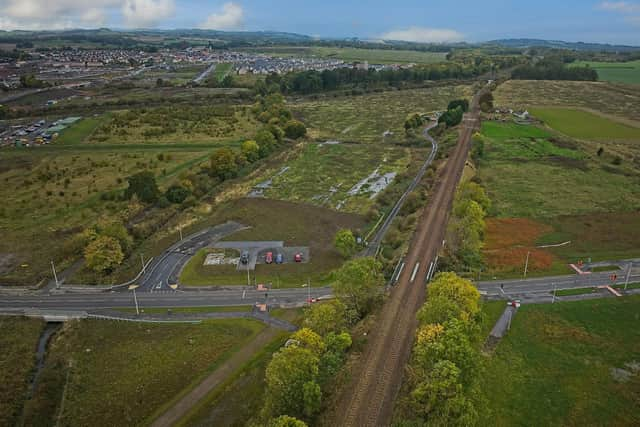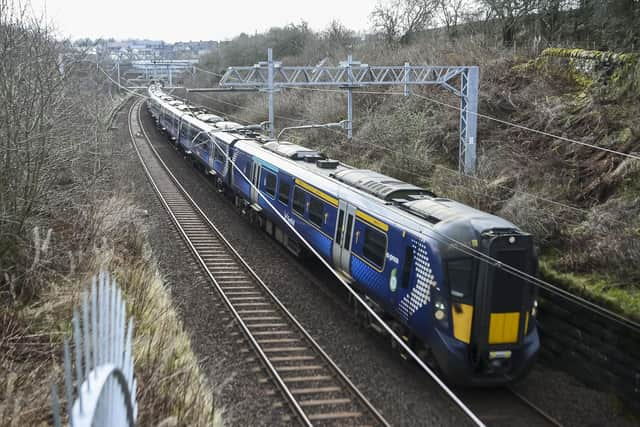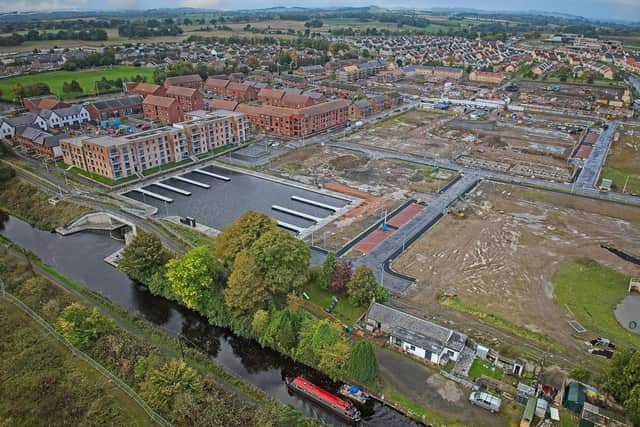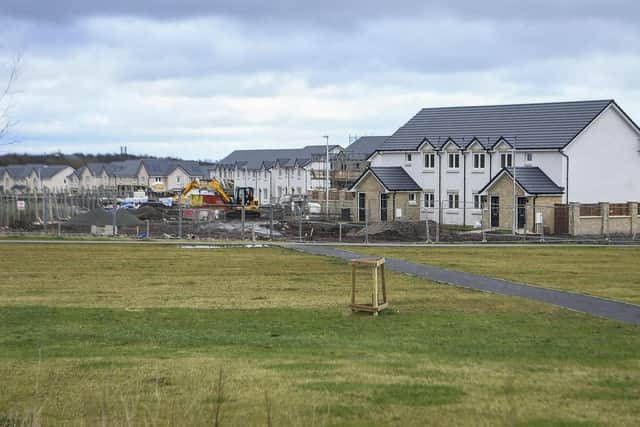Calls for meeting to discuss progress on new railway station in Winchburgh
and live on Freeview channel 276
But 12 years after it was approved in principle, progress on opening a railway station at Winchburgh on the main Edinburgh-Glasgow line appears to be glacial, if not at an impasse.
The West Lothian village has already doubled in size, with around 1000 new homes, with up to 2000 more planned over the next 20 years.
Advertisement
Hide AdAdvertisement
Hide AdThat will provide a significant potential source of rail passengers against a backdrop of the Scottish Government’s ambitious target of reducing road traffic by 20 per cent within six years to meet its emissions goals.


On the face of it, everyone’s singing from the same hymn sheet over the station – but it sounds like they’re still not in unison.
On the one hand, the developer spearheading Winchburgh’s expansion is champing at the bit to get going on the station. West Lothian Council has expressed “huge concern” at the delays and the Scottish Government agreed that everyone must work together “to ensure it can happen”, with its Transport Scotland agency “committed to playing a full part”.
However, while Transport Scotland insisted the station must be “developer-led”, Winchburgh Developments Limited (WDL) said it still hadn’t been given full details of infrastructure owner Network Rail’s assessment of the scheme to be able to able to submit detailed proposals. This is a requirement of the outline planning permission granted in 2012.
Advertisement
Hide AdAdvertisement
Hide AdThe developer also dismissed doubts about how much it was willing to contribute – it already spent £50 million on a new access junction on the M9 and other transport improvements – saying it can’t commit until the final designs are produced so the cost of the station is known.


The council said it believed the estimated cost was “significantly higher” than original estimates. This comes just as ministers are scaling back on building projects because of a cut in capital funding from the UK government. It is expected to cost more than the £15m for Scotland’s newest station, which opened at East Linton in East Lothian in December.
The situation has been complicated by Winchburgh being in newly-appointed transport secretary Fiona Hyslop’s constituency, so oversight has been transferred to active travel minister Patrick Harvie.
Prior to becoming the (junior) transport minister last year, she had campaigned for the station and sought to accelerate the work by bringing the key bodies involved together.
Advertisement
Hide AdAdvertisement
Hide AdHowever, the smoke and mirrors over what’s really going is reflected in apparent delays to a key meeting that could inject new impetus to the project.


Mr Harvie has agreed to attend a meeting with WDL, Transport Scotland, Network Rail and West Lothian Council. Transport Scotland initially said it was for the council to convene the meeting and “no proposed date has been received”.
The council said it had requested suitable dates from Mr Harvie’s office and, after “repeated reminders”, it was told on February 12 the minister was “unable to engage with us over any potential meeting dates at this time, as they require to carry out further internal work first”.
However, Transport Scotland offered a new explanation on Friday – that because of the Cabinet reshuffle on February 8, ministerial diaries were “under review” and once they were confirmed, “a date for the meeting and site visit can be arranged”.
Advertisement
Hide AdAdvertisement
Hide AdWhatever, the real reason, Scottish Conservatives Lothian MSP Sue Webber, who has lodged a parliamentary question over the delay, criticised the lack of urgency.


She said: “A new railway station for Winchburgh is essential for such a fast-growing community if even more traffic gridlock in west Edinburgh is to be avoided, and should fit perfectly with Mr Harvie's aims and beliefs.
“It's a very simple request for him to engage with the discussions and I don't understand why it's taking so long to respond.”
Transport Scotland said Network Rail’s reports were shared with WDL last year. WDL said it had only received “two brief statements giving optional design stage costs” with no construction cost estimates.
Advertisement
Hide AdAdvertisement
Hide AdThe developer said it could not discuss how much it would contribute to the station until a final design and cost, which it said it had been awaiting for 11 years.
WDL chief executive John Hamilton said: “We have always been prepared to contribute money to a new train station. It will only happen if the Scottish Government and other public bodies partner with us.
“No private developer can plan, design, fund and approve new stations on the public rail network on their own.
“We call on the Scottish Government and Mr Harvie to commit to a stakeholder meeting date urgently so we can finally build some momentum on this vital project.”
Advertisement
Hide AdAdvertisement
Hide AdA Transport Scotland spokesperson said: “We recognise the case for a station at Winchburgh and remain supportive.
“All parties must work together to ensure it can happen and we remain committed to playing a full part in that collaboration.
“Any such station should be developer-led and supported by the appropriate level of funding, especially in the context of a very large-scale and high-value development it would serve.
“Any solution must include the developer, one with access to significant resources, accepting responsibility for a significant part of the cost. This responsibility has always been part of the equation.”